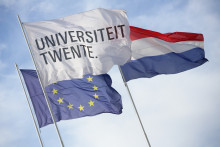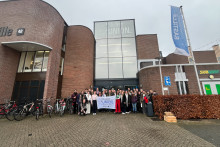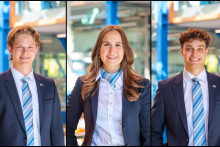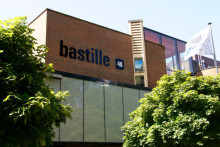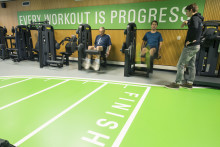The Student Internationalization Platform (SIP) falls under Student Union. Yesterday’s dialogue was led by Yasmin Salce, member of the SIP, and Jordi Weggemans from the Student Union board. Issues brought up by international students in previous meetings where followed up, but new issues were also put on the table.
Centralizing relevant information
Students suggested which type of information should be more accessible and centralized. It was mentioned how working permits for non-EU students, for instance, continue to remain an opaque process that students and even employers are sometimes unaware of. Part-time jobs like students assistantships, for example, are frequently denied to non-EU students even when they meet the job qualifications because the procedures of requesting working permits aren’t always clear for both parties.
Other proposals for centralized databases included accessible information to look for and receive medical and dental care, as well as traveling information which could teach incoming students the diversity of deals offered by NS. Current projects to build a centralized database to look for housing at the campus or in the city were also mentioned, as people reminded the organizers that many student houses aren’t always open to international flatmates.
Associations must be kept independent
The student associations’ lagging behind to the University’s overall internationalization project prevails a central topic of debate. It was discussed how culture and sports associations are sometimes unclear about their acceptance of international students. Those willing to participate in associations find most of the information offered in Dutch. Additionally, students who join sports teams encounter communication hurdles during the training sessions.
It was stressed that it wasn’t the internationals’ intention to force associations into official internationalization policies. While the associations do receive subsidies from the University, they are still considered independent and should have room to be handled with freedom. However, the students would appreciate if each association would be straightforward in communicating the degree of acceptance to internationals and state beforehand their willingness, or lack thereof, to speak in English during their activities.
Integrating to culture, not replacing it
When addressing the concerns of Dutch students of losing their culture, the organizers and attendants agreed the goal was to integrate to Dutch culture, rather than replacing it. ‘I feel we care about their culture, but they don’t care about ours,’ reflected Lefika Otisitswe, a Creative Technology student from Botswana. ‘I don’t want Dutch people to give away their culture, I came here to learn about it. But if they don’t share it with me, how can I do that?’
The following internationalization meetings will continue to be advertised on Facebook, as the organizers work towards translating the students’ concerns into policies that can simplify the process of integration for those who come from abroad to study at the University of Twente.


